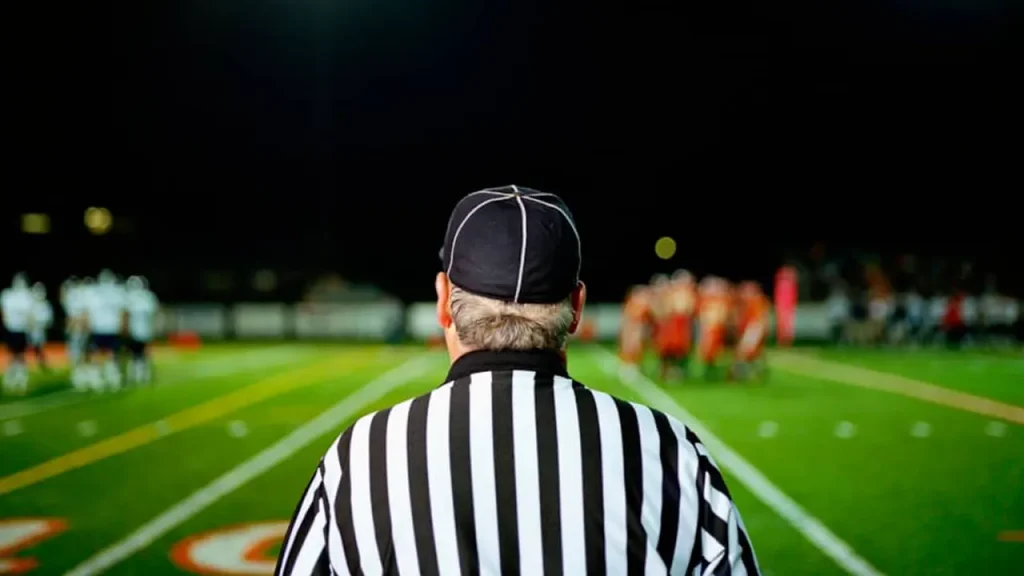Sports are a microcosm of human behavior, a realm where emotions run high, strategies clash, and every decision counts. At the heart of this intense arena stand the referees, the impartial arbiters of fairness and order. But their role extends beyond blowing the whistle and making calls; it delves into the intricate realm of psychology. In this article, we will explore what sports referees need to know about psychology and how this knowledge can elevate their performance and decision-making on the field.
1. The Mindset of Players and Coaches
A crucial aspect of a referee’s role is understanding the mindset of players and coaches. Emotions often run rampant in the heat of competition, and referees need to recognize the psychological triggers that can influence behavior. Learning to read body language, identify frustration, and anticipate reactions can help referees manage potentially volatile situations and ensure that the game proceeds smoothly.
2. The Impact of Decision-Making
Every call a referee makes has a psychological impact on the players, coaches, and even the spectators. A seemingly innocuous decision can ignite emotions, from joy to frustration. Understanding the potential psychological ramifications of each call can help referees approach their decisions with empathy and consider the broader context of the game.
3. Managing Pressure and Stress
In the high-stakes world of officiating, referees find themselves navigating a relentless atmosphere of unyielding pressure. In the high-stakes world of split-second decision-making, where voices collide in a symphony of chaos, the toll on mental well-being cannot be underestimated. In the high-stakes world of refereeing, the ability to handle stress, maintain unwavering focus, and exhibit unshakeable composure under immense pressure is nothing short of crucial.
Referees must develop and implement psychological strategies that will enable them to perform at their absolute best, ensuring the integrity of the game remains intact.
Interest or Talent: Unraveling the Factors that Contribute to an Athlete’s Success
4. Building Rapport and Communication
In the world of sports officiating, effective communication reigns supreme. Referees must master the art of conveying messages to players, coaches, and officials alike. This skill requires a keen understanding of non-verbal cues, active listening, and the ability to deliver decisions with clarity and confidence. By establishing a foundation of respectful and assertive communication, referees can foster an environment that minimizes conflicts and promotes unity on the playing field.
5. Neutralizing Biases and Preconceptions
Referees, just like any other human being, are not immune to unconscious biases or preconceived notions that may inadvertently influence their judgment. To ensure fairness and uphold the trust of all involved parties, it is crucial for referees to undergo self-awareness training. By actively identifying and neutralizing these biases, referees can navigate potential pitfalls and strive for objectivity in their decision-making process. This commitment to fairness is paramount in maintaining the integrity of the game and the confidence of those who participate in it.
6. Adaptability and Resilience
In the dynamic and unpredictable world of sports, referees are always on high alert, poised to adapt swiftly to the ever-changing circumstances that unfurl right before their eyes. In the dynamic realm of sports, referees must exhibit unwavering mental strength to adjust to a multitude of factors that can sway the final result of a match.
In the ever-changing realm of sports, where the capriciousness of Mother Nature and the unexpected maneuvers of athletes reign supreme, referees are tasked with showcasing an extraordinary degree of psychological adaptability. With lightning-fast adaptability and razor-sharp decision-making skills, they possess the uncanny ability to swiftly alter their strategy and make pivotal choices amid intense competition.
In the thrilling realm of sports officiating, the art of cultivating resilience and the unwavering capacity to rebound from arduous circumstances reign supreme as indispensable qualities.
7. Empathy and Emotional Intelligence
In the realm of officiating, empathy emerges as the undisputed champion, serving as a mighty weapon within a referee’s formidable arsenal. In the thrilling realm of competitive sports, referees demonstrate their invaluable prowess by not only comprehending but also empathizing with the profound emotions experienced by players and coaches throughout a match.
In a display of remarkable prowess, referees exhibit their ability to forge a genuine connection with the athletes on the field, thereby possessing the extraordinary capacity to deescalate potentially explosive circumstances and uphold the unwavering integrity of the game. In the world of sports officiating, referees with finely-tuned emotional intelligence exhibit an impressive ability to navigate through high-stakes and tension-filled scenarios, showcasing an exceptional degree of perceptiveness.
With their astute ability to analyze the game, they possess the capacity to make assessments that fully comprehend the complex human dynamics in motion.
8. Continued Learning and Development
In the dynamic realm of sports psychology, a plethora of invaluable insights await referees, providing them with an ever-expanding arsenal for perpetual enhancement. By actively participating in workshops, diligently seeking guidance from esteemed sports psychologists, and staying up-to-date with cutting-edge research, referees can fortify their mental prowess and elevate their ability to make precise decisions on the field.
Conclusion: Elevating Referee Performance Through Psychology
The sports arena is more than simply a physical location for referees; it is also a psychological environment where an understanding of player behavior is just as important as a grasp of the game’s laws. Adopting psychological principles enables referees to make better judgment calls, handle pressure gracefully, and contribute to a more harmonious and pleasurable sporting experience for all parties involved.
Referees take on the complexities of psychology when they transition from being only rule enforcers to also serving as the game’s stewards. Referees can improve their performance, gain respect, and add to the appeal and fairness of sports on a worldwide scale by utilizing the power of psychology.















